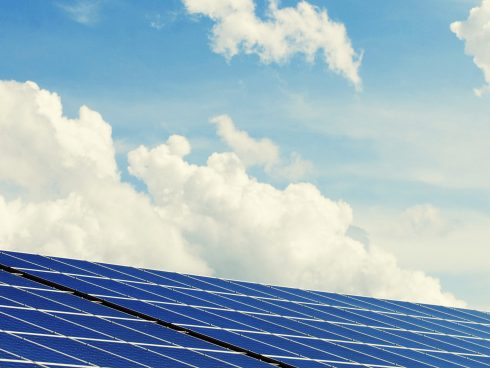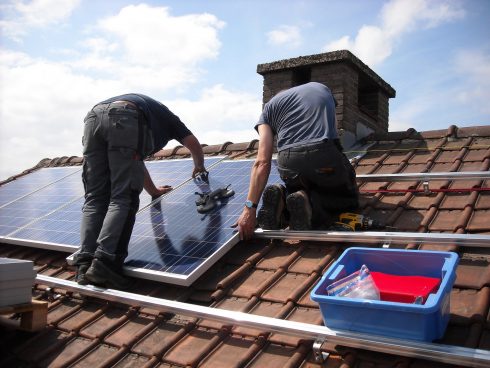BELIEVE it or not, people harnessing the sun’s energy in Spain were taxed until 2018 because they were seen to be depriving energy companies of an income.
The right-wing ideology was banished when PSOE came to power and solar energy has since seen a surge in use.

Additionally, a growing ‘energy cooperative’ movement has been boosted after changes in policy means improved services for smaller groups wanting to share panels.
This also coincides with calls from the public to desist in raising energy prices to record levels, matching the high demand during hotter weather.
Solar installations have accelerated exponentially since the 2018 abolition of the so-called “sunshine tax”.
The levy was imposed on self-sufficient consumers in 2015 for, effectively denying power companies of income.
Remarkably, these green consumers were also obliged to redirect their surplus energy to the national grid, free of charge.
According to the Spanish Electric Network, almost half of electricity currently produced is from renewable sources, but only 6% came from solar power, with the remainder coming from wind turbines and nuclear plants.
Countries such as Germany have three times as many solar power installations as Spain, despite having less than two-thirds the amount of sun.
Architecture and socio-demographics play their part because where most of the populous live in single-family dwellings, installation is very easy.

However in Spain, over 66% of the population live in apartment blocks, and with residents being a mix of renters and owners, sharing the installation cost is more complex.
That challenge is often addressed with roof panels installed on public buildings such as schools and council offices, instead.
Factories and warehouses can also supply solar power to neighbouring homes and businesses.
Barcelona’s independent Sustainability Observatory has proposed a huge rooftop campaign that would produce enough energy for 7.5 million people, with a return on investment taking only six years.
Football club, Athletic Bilbao, is offering a similar solution to its neighbours.
Working with Tekathlectic, 300 solar panels were fitted to their new stadium (below) in 2013.

The energy produced from the sun powers 200 homes and businesses within a 500-metre radius, with tariffs 25% below the normal prices.
In Zaragoza, Ecodes has teamed up with EDP and the local council to start the Solar Neighbourhood Project.
EDP has supplied and installed solar panels on the roofs of two municipal sports centres, each of which generates enough clean energy to supply 200 homes and businesses in the city.
Spain’s oldest energy cooperative was founded in Girona in 2010 by Som Energia (We Are Energy), and has some 70,000 members
The collective acts as an umbrella for smaller groups across the country, with members paying a joining fee of €100, which is later reimbursed.
Alonso went on to mention that some of the established energy companies are now also utilising the changes after recognising the groundswell of green opinion, with some offering free installations for energy cooperatives.
She said, “the company still owns the installation, you have a contract with them, and the only difference is the electricity comes from solar panels.”
Cecilia Foronda is the head of energy at Ecodes, she said, “The big power companies are reconfiguring themselves from selling electricity to selling services, but we need to ensure that energy self-sufficiency is in the hands of citizens because it empowers them.”
READ MORE: Spain looking at new ideas to reduce sky-high electricity prices
